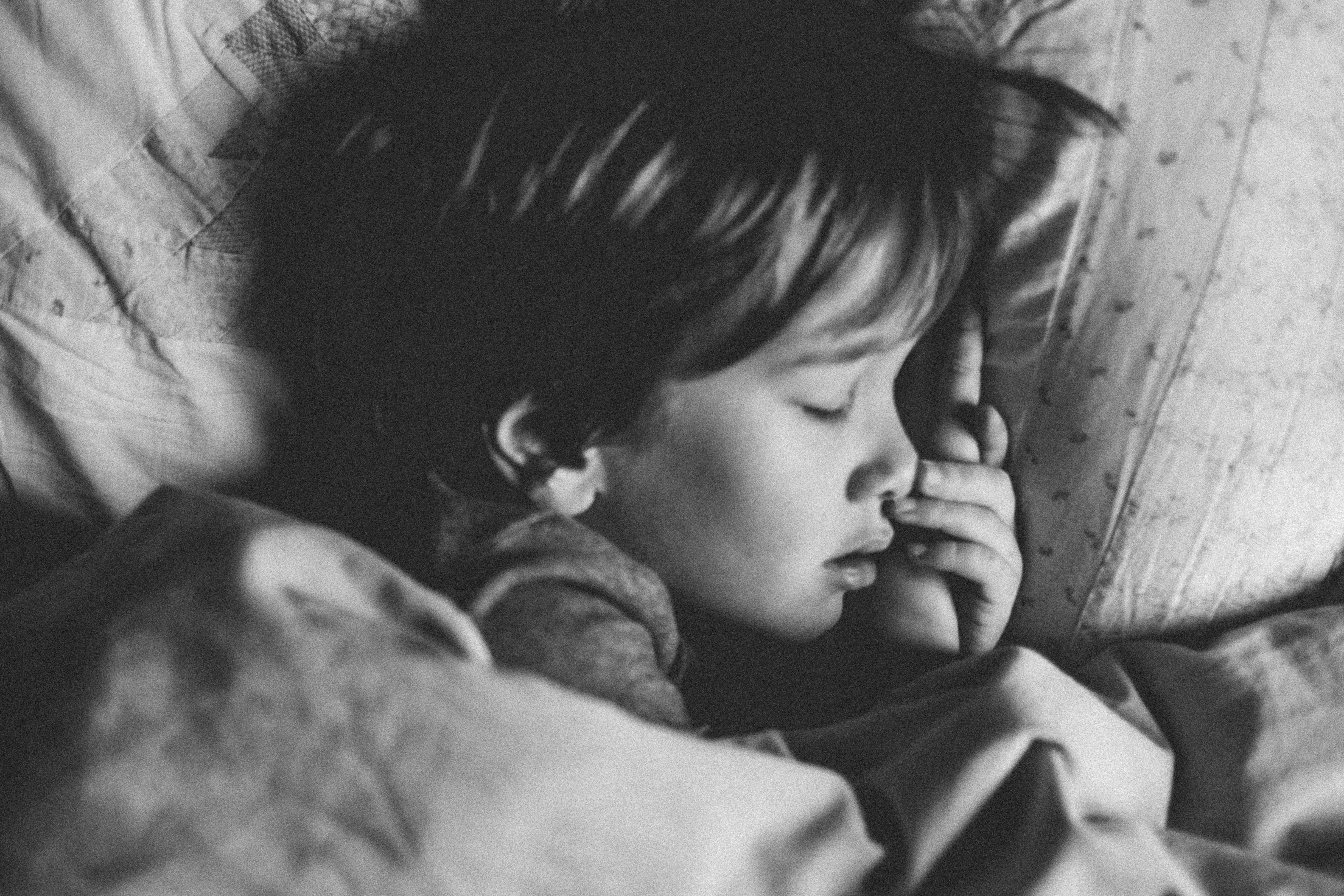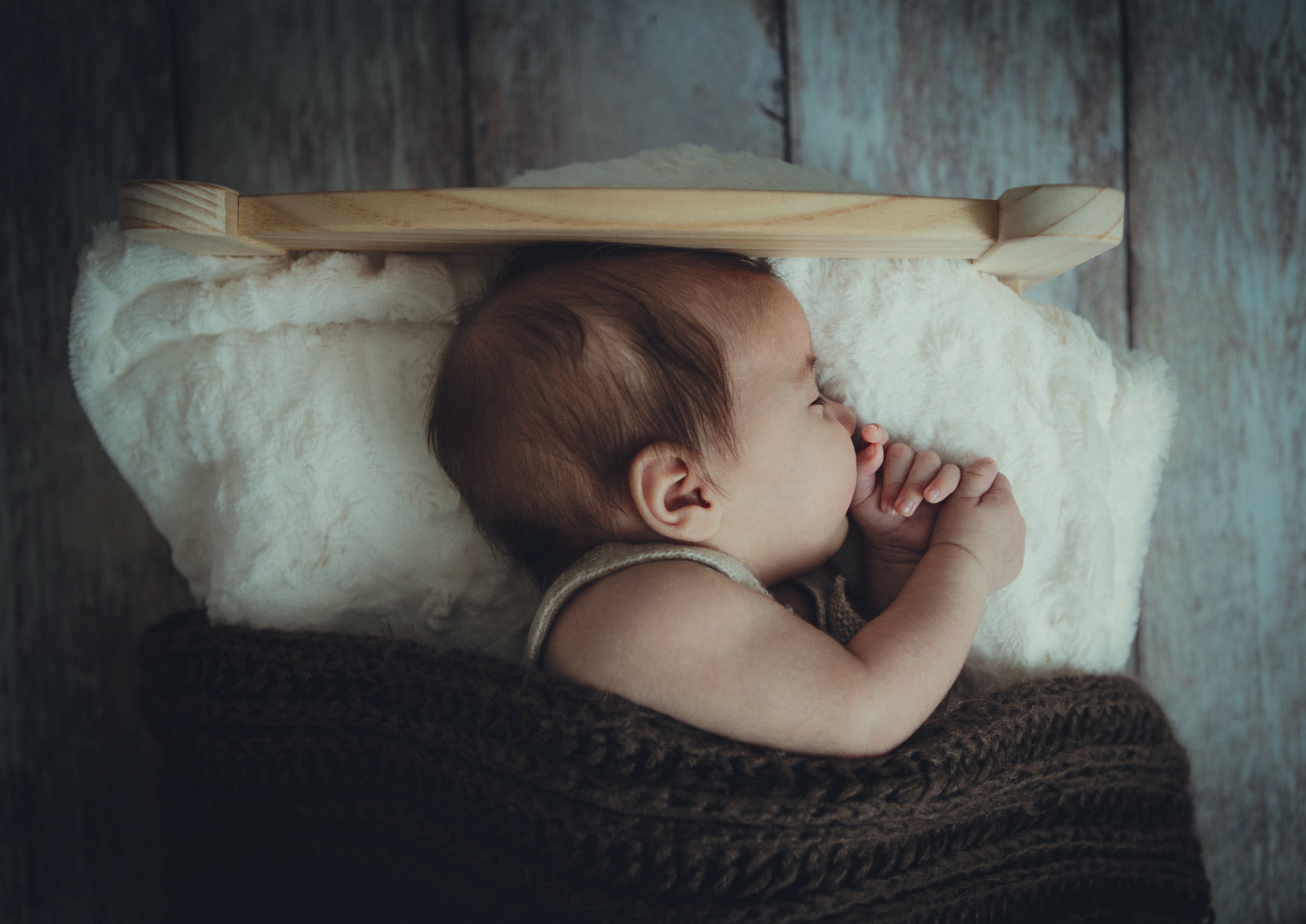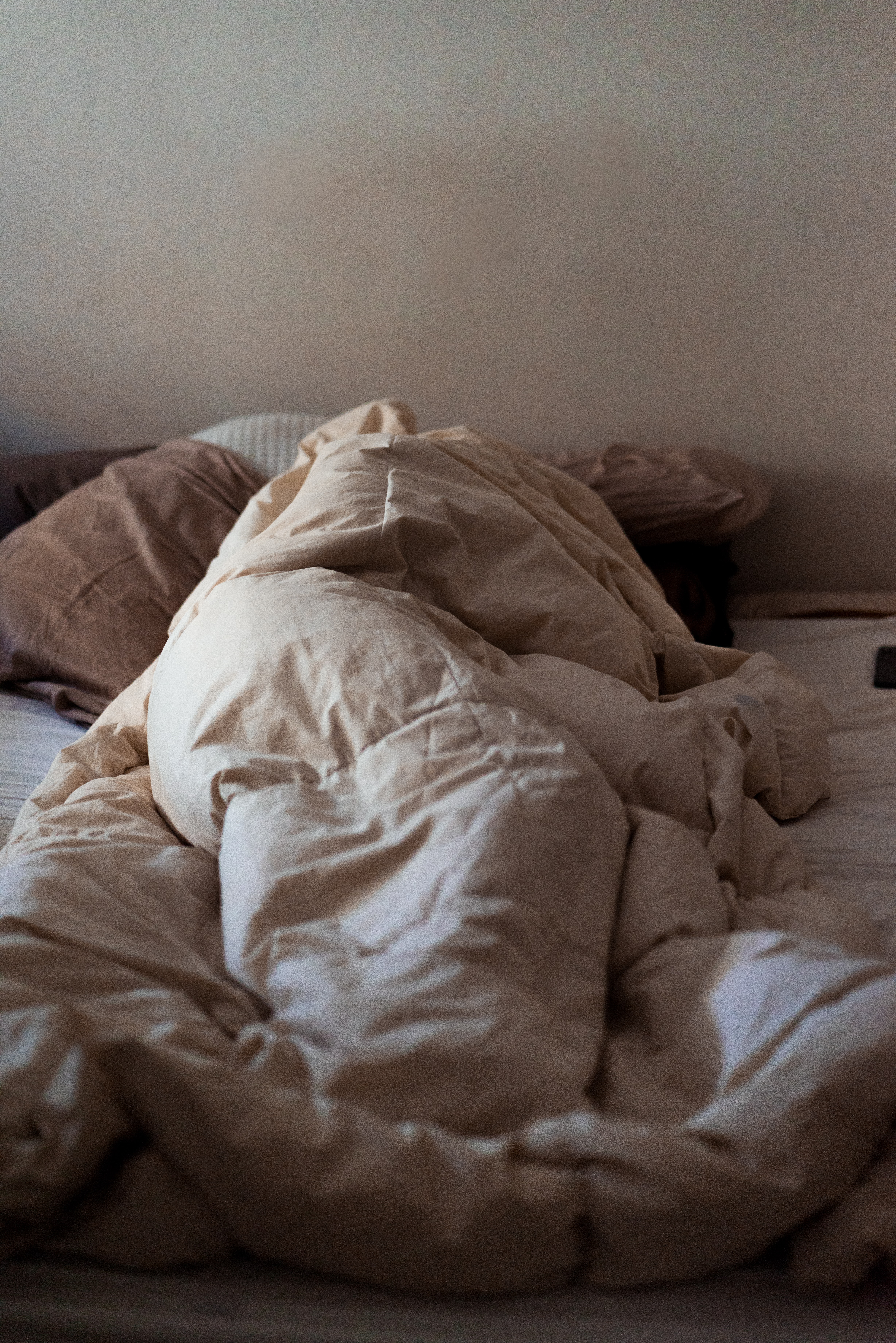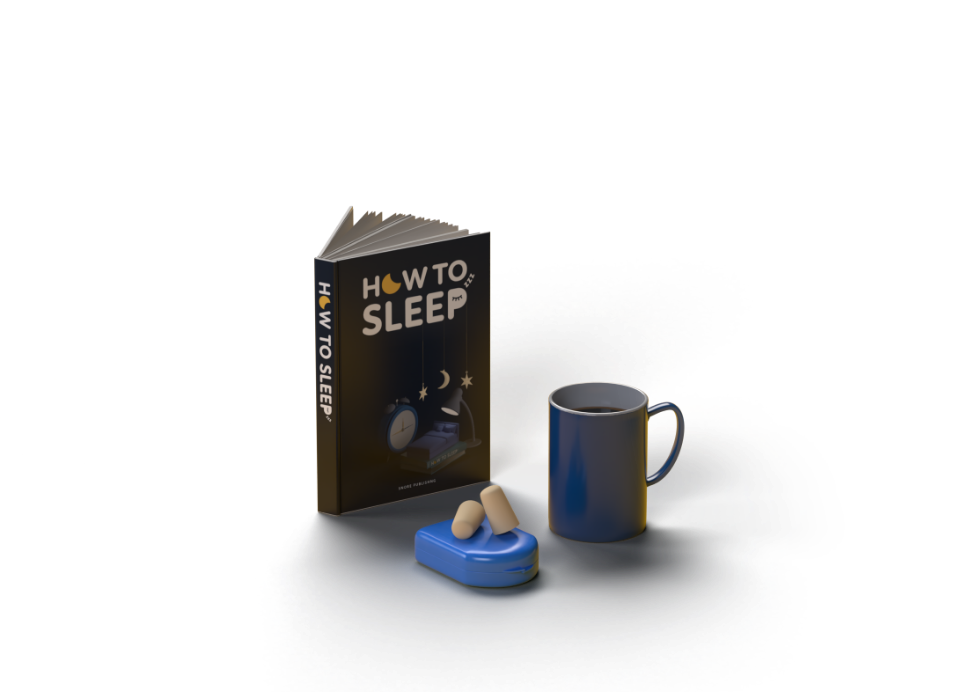
How much sleep do children need?
Learn moreContents
We’re all familiar with the horrible feeling the morning after a night of too little sleep. Headaches, trouble concentrating and an increased desire to reach for unhealthy food can all be a result of not getting a proper rest the night before.
For children, the impact of having too little sleep goes further than just feeling groggy for a day or two after. Sleep is a crucial part of development, and children are constantly growing, so it makes sense that they need more sleep than adults so that their brain can rest and recharge. But how much sleep do children need?
In this guide, we’ll give you a general step-by-step guide to how much sleep your child needs at each stage, as well as covering what happens during sleep, and tips to help you if your child struggles to get a good night’s rest.

What happens when children sleep?
Learning exactly what happens to a child’s brain during sleep can be helpful in understanding why it’s just so important that they get the right amount of hours. For all humans, sleep allows our brains to rest and repair.
The brain stores new information, and gets rid of toxic waste. The cerebrospinal fluid, or brain fluid, gathers toxins during the day as it uses up energy. During sleep, the brain brings in fresh, clean fluid and flushes out the old fluid out from around our brain cells, kind of like a deep clean.
Additionally, our nerve cells communicate and hormones are released, all of which are essential for maintaining a healthy, functioning system. Not only does this help our cognitive function, but also helps regulate weight gain, insulin function, immunity, heart health and energy conservation.
Additionally, children are constantly learning and growing. During sleep, a child’s brain is solidifying all the things that they learnt throughout their day, and storing them for use for the rest of their lives. Doing this requires a huge amount of energy, and so the body rests so that it can divert this energy to the brain.

Why do different age ranges need more sleep?
At first, babies have a lot of growing and learning to do. They need to learn who their parents are, and recognise their environment around them as well as physically develop. As a child gets older, this rapid growth begins to slow, and so the amount of sleep that they need decreases, although they still need more than adults.
It’s also important to remember that sleep is a very personal thing. Whilst age can give a good indication of how many hours your child might need, make sure to pay attention and see if they seem refreshed and alert in the morning. If not, you may need to try an earlier bedtime to find out what works best for them.
Babies and toddlers: 12 – 16 hours
Babies sleep for about 95% of their time in the womb, so it’s no surprise that they also need the most sleep in the outside world as well. For any new parents, the sleep deprivation that comes with having a newborn is well-known. But why is it that parents seem to spend so much time soothing their babies back to sleep, when the stats suggest that their baby should be sleeping for half of the day?
Unfortunately, babies don’t follow the same sleep pattern as the rest of us yet. Humans are governed by our circadian rhythm, otherwise known as our body's internal clock. Factors like sunlight signal to our brain that it’s time to be asleep or awake, and this in turn affects our hormone production. Of course, in the modern world, we can use daylight clocks or blackout blinds to trick our brains into thinking it’s time to sleep or be awake, but this still triggers the same biological process.
In the womb, the baby is in darkness. They rely on the mother’s sleeping patterns to govern respiratory and heart rates, as well as hormones passing through the placenta. However when a baby is born, there is a period of time, usually around 12 weeks, where they need to establish their own rhythms now they’re not physically connected to their mother. This is why you often find that babies sleep for short periods of time and then wake up in the middle of the night, completely alert – they simply don’t have an established circadian rhythm yet.
With time and sleep training, you should begin to find that your baby starts to sleep for longer periods of time, and as they grow into toddlers, that you can help them sleep with a good nighttime routine, which we’ll discuss later. Between the ages of one and two, toddlers should drop a few hours of sleep from their routine, taking them down to around 14 hours.
It’s important to note that the guidance on sleep times for babies and toddlers includes naps, as part of a healthy routine to help them rest and grow.
Three to five year olds: 10 – 13 hours
During the ages of three to five, children tend to be active and curious, learning about their surroundings and becoming increasingly confident. Perhaps they might have started pre-school, or even started attending primary school, which will leave them with plenty to learn and process. As well as developing fine motor skills to allow them to do things like putting their shoes on and holding pencils, children of this age are learning how to make friends and navigate social situations.
It’s important to establish a good sleep routine at this age. Sleep issues like night terrors and nightmares are common at this age, as well as being afraid of the dark. This can be because they’re overtired, or because they’re worried about something. Night terrors can also be triggered by excitement, anxiety, sudden noise or a full bladder, as these things can pull your child quickly from deep sleep.
Night terrors can be scary for a parent to watch, but the best thing to do is to leave them alone unless they’re in danger of hurting themselves, as they may not recognise you, and that might frighten them more. They won’t remember the incident the next day. If they happen at the same time each night, you can try waking your child 15 minutes before that time in order to break the pattern. If they happen regularly, speak to your GP.
You may also find that children wet the bed at this age, but they should grow out of this. Purchasing a waterproof mattress cover can help stop staining and make the clean up process easier.
Six to twelve year olds: 9 – 12 hours
Children are in school at this age, and so are governed by routine. They no longer have the option of napping, although some schools do have a quiet period in the afternoon for younger children. As a result, when they get home from school, they’re likely to be tired and full of information and emotion about their day.
Sleep is vital for helping children regulate their emotions and avoid becoming overwhelmed with the amount of new information that they are taking in. Good quality sleep will help them feel more settled and will help them concentrate and demonstrate good behaviour. A good night’s rest is also important for supporting their immune system, which can help them fight off the common coughs and colds that fly around schools.
At this age, you may find that your child sleeptalks or sleepwalks. This is just a sign of their excitement or worry about something, and is perfectly normal. Talking to your child about their day and how they’re feeling can be a good way to allow them to let out their emotions, and hopefully reduce the nighttime symptoms. They will also naturally grow out of it as they get older.
Teenagers: 8 – 10 hours
Getting your teenager to go to bed at the right time can feel like a battle. With hormones raging and many teenagers wanting to do the exact opposite of what their parents are asking, it can be hard to establish a routine that is healthy for them. Social pressures also come into play, especially when they want to be in continuous contact with their friends or online, as going to sleep can feel like they’re missing out.
Ultimately, teens will make their own decisions and you can’t stop them from keeping the light on under their covers until the early hours. But what you can do is to try and compromise with them – perhaps you suggest that they’re in bed at a certain time on weeknights, and then it’s their call on the weekends? As long as they’re not disturbing the rest of the house, these years can be a good opportunity for them to find out what works best for them and take some responsibility.
However, there are times when they’ll need plenty of sleep, such as exams and other big life events. Try and support this by creating a good routine in the house – for example, reading before bed yourself rather than watching TV until midnight. Depending on how you like to parent, you could then talk with your teen about them doing this too. Creating and encouraging a habit of leaving screens out of the bedroom can also help.
How can you help your child get a good night’s sleep?
It will depend on your child’s needs, but there are some things you can start with small children that will help them get into a routine when it comes to going to bed. These tips are most suitable for younger children, as teenagers are likely to establish their own habits.
Create a sleep-friendly environment
Taking the time to create a sleep-friendly environment for your child will help them get a better night’s rest, which impacts how they feel in the morning. Even being woken up a few times in the night or being too hot can affect how well someone sleeps, so learning what works best for your child will be a good investment in their mental and physical health. Here are three things to consider.
Temperature. Temperature is important when it comes to getting a good night’s sleep. It makes sure that your child is comfortable and will not wake up or move around in their sleep to throw off the covers.
Light levels. You should also support the body’s natural circadian rhythm by keeping the light levels consistent in your child’s room. This doesn’t mean it needs to be pitch black, but keeping light levels low will ensure that your child produces the sleep hormone melatonin. If they’re afraid of the dark, install a small night light to soothe them.
Noise. Some young children struggle to sleep in silence, so you can use a white noise devices or play rain sounds to help soothe them. However, just be aware that they may become dependent on it, so if they start to rely on it, phase it out.
Creating a good routine
Creating a good bedtime routine can help keep consistency, which will help your child recognise that it is time to go to sleep. It can give them a sense of security, so that they feel relaxed enough to fall asleep on their own, without relying on you. Having a routine can also help your child as they know what is coming next, rather than being excitable or nervous because they’re unusure. Routine also has long-term health benefits.
A warm bath before bed can help a child relax and feel sleepy. Make sure it’s not too hot so that they don’t overheat and struggle to get to a comfortable temperature for sleep.
For younger children, read them a bedtime story to help them relax, or listen to an audiobook or calm music together whilst they settle. Older children can have some time to read quietly to themselves, or perhaps read out loud to you.
Avoid screens, as they produce blue light which suppresses melatonin and keeps us awake. They can also be too stimulating before bedtime.

